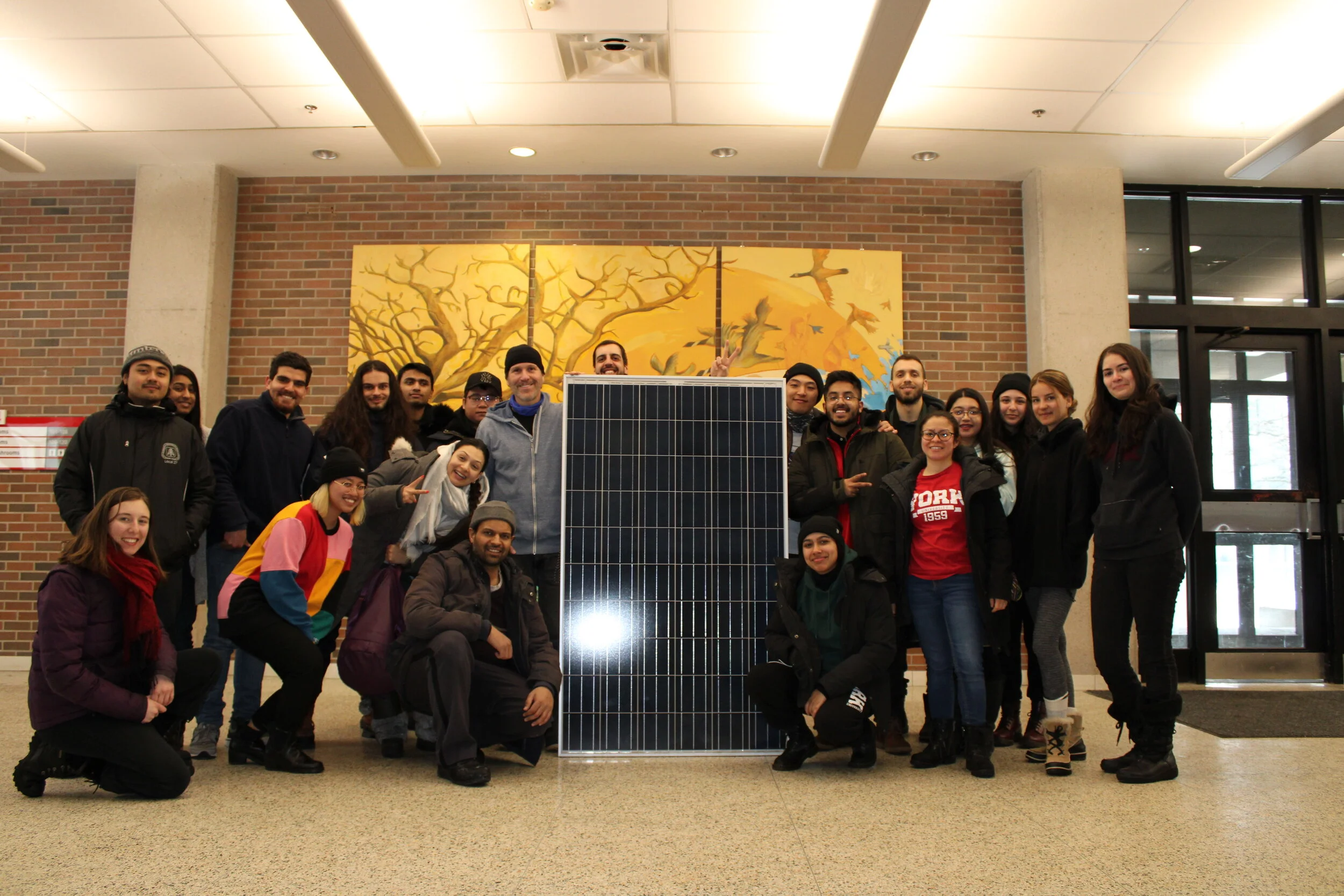BY: AYESHA KHAN
As part of a series of climate-friendly initiatives, York University’s faculty of Environmental and Urban Change has been working on a number of innovative Climate Solutions Parks, both on campus and throughout the wider world.
The initiative began about 5 years ago, when the first solar charging station was built at Kaneff tower. Professor Jose Etcheverry, a project lead for these parks, was conducting carbon-free labs, the prototype for which ended up replicated in Algeria, Chile and other locations.
They then conducted a small installation with the Black Creek Community Farm which charged drones designed for precision agriculture in their field.
Progressing forward, solar panels were built on top of Scott Library, much due to the work of EUC faculty-student Codrina Ibanescu, and the conversation began to broaden from just solar energy and carbon-free labs to the concept of Climate Solutions Parks.
The parks themselves are focused on the digitalization of education and sustainable living. They contain permaculture and gardening setups, hubs for programming, solar/renewable energy installations and more utilizing cheap, reusable materials such as shipping containers.
The parks are designed to be a work-integrated learning destination for students, providing a valuable educational experience as well as fostering a deep love for the environment. An example of this is the UPASET program headed by Dale Hamilton, a Master’s candidate in the EUC faculty who led a training program from April to March 2021 featuring educators from various backgrounds such as hydroponics, sustainable farming, economics, arts and more, rooted in the United Nations Sustainable Development Goals. “This project gives me hope for the future because it demonstrates that we not only have climate change solutions, but also a capable and committed young generation capable of carrying them out.” Dale expressed, of the program.
Students received scholarships allowing them to learn interdisciplinary content built around concepts such as Indigenous rights, justice and cosmology. “It’s about changing hearts and minds,” said Codrina, EUC faculty student “we are promoting a stream of consciousness rooted in interdisciplinary learning, empathy and biocentrism.”
The program persisted through changing COVID-19 restrictions, adapting intrepidly to an online format but with hopes to one day transport the cohort of students to Penetanguishene, Ontario for a climate solutions park currently in the works.
Prof. Jose will also be teaching an outdoor leadership course on Climate Solutions Parks for the year 2022, as a part of the climate solutions certificate.

